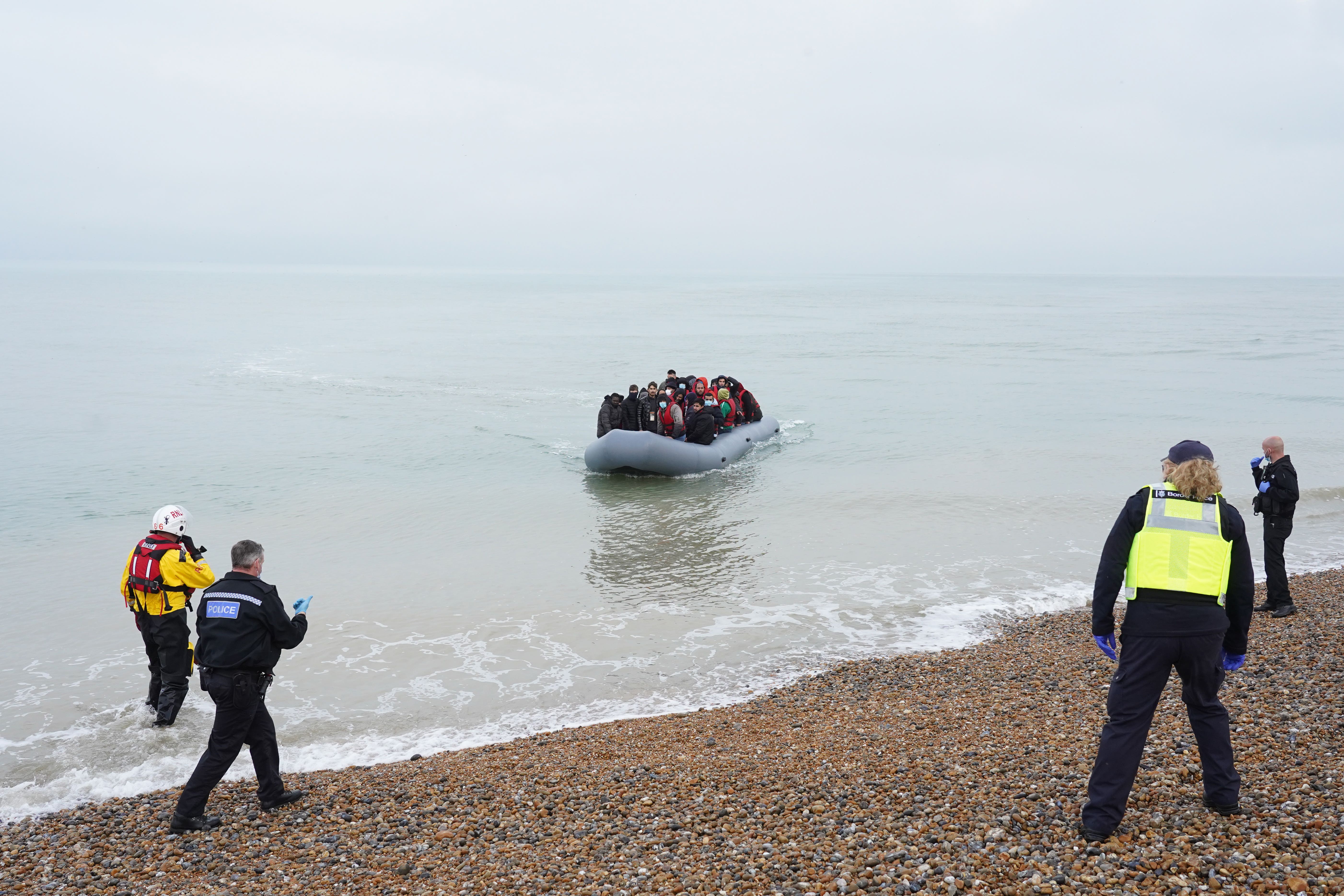Government must say how many die attempting small boat crossings – charity
Research by the Refugee Council suggested that more migrants died in the Channel in 2024 than in the previous three years combined.

The Government must say how many migrants die crossing the Channel, a charity has urged, amid fears more perished in 2024 than in the previous three years combined.
Enver Solomon, chief executive of the Refugee Council, said the status quo “is not working” as he called on ministers to look at opening up new routes into the UK for people fleeing conflict or persecution.
The Home Office confirmed several schemes are open to refugees fleeing Ukraine, Afghanistan and Hong Kong, with its focus on people who have already been identified as eligible for resettlement under these programmes.
A spokesperson for the department said people who facilitate crossings using small vessels “only care about profit”.
The record number of deaths in the Channel this year should serve as a stark reminder that the current approach is not working
The Refugee Council’s January paper titled, Deaths in the Channel, identified 69 recorded deaths in the English Channel throughout 2024.
This includes the three people known to have died off Sangatte, near Calais in France, last Sunday, when 45 others were rescued.
This is more than the total 49 deaths it identified for the period covering 2021 (32 deaths), 2022 (5) and 2023 (12).
The organisation warned there is “no official data published on the number of people who die trying to reach the UK”, with figures calculated using a mix of press releases, media articles and reports by local organisations.
Its paper continues: “While data has occasionally been released in response to parliamentary questions or freedom of information requests, there are no regularly released statistics.”
According to the Refugee Council, “there is consensus that the number of people risking their lives by getting in small boats needs to be reduced” but “the lack of an official source of data on the people who die crossing the Channel, how it happened, and the reasons for why they were trying to reach the UK creates an evidence gap”.
Mr Solomon said: “The record number of deaths in the Channel this year should serve as a stark reminder that the current approach is not working.
“Smuggling gangs are profiting from men, women and children forced into life-threatening conditions, and enforcement measures alone are not enough to address this.
“More safe and legal routes are needed to provide a lifeline for those fleeing war and persecution. The success of the Ukraine schemes shows that when safe alternatives exist, refugees use them and don’t resort to incredibly dangerous journeys across the Channel.
“The Government also has a responsibility to invest in better search and rescue operations, in partnership with France, to prevent yet more deaths.
“Every person who lost their life in the Channel this year was someone with a story and loved ones – like seven-year-old Sara, who died boarding an overcrowded boat with her family. These deaths are not inevitable.
“The Government needs to take a different approach if it is to ensure everything possible is done so that 2025 does not see a repeat of last year’s devastating loss.”
A Home Office spokesperson said: “Every life lost at sea is a tragedy, which is why our efforts are focused on saving lives, as well as protecting our borders.
“The people smuggling gangs only care about profit and we are seeing their behaviour adapt, with more people crammed into flimsy and dangerous boats.
“Our joint work with France in preventing crossings is about stopping people putting themselves and others at risk.”
Bookmark popover
Removed from bookmarks